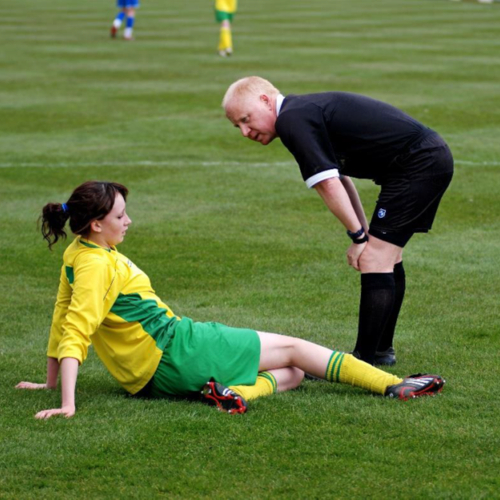 What will I get?
What will I get?
You will get approximately 30 minutes of content, which totals up to an hour of activity. As with all modules, we condense the latest cutting-edge research into a series of bite-size chunks, highlighting the key concepts, ideas and theories into a digestible format. These are supported by interviews from top international sports officials who bring that content to life, together with video examples taken from match officials in touch (rugby), rugby-union, rugby-league and hockey.
What are the aims of the module?
- Identify and describe the 5 different player types
- Recognise ways in which players attempt to influence sports officials and their decisions to create more favourable outcomes in the game
What will I learn?
You will learn the 5 different player types and the strategies that players use to try and influence us. You will be given ideas on how to manage the most challenging of these player types.
Which research will be presented?
Research by Dr Ian Cunningham and colleagues (2015) and Professor of Communication Peter Simmons (2011) from Australia will be explained. We draw upon well-established research into perceptions of procedural justice (Bies & Shapiro, 1988) and how following this simple principle can make players more receptive to our decisions, even when they are unfavourable.
Who will I learn from?
Associate Professor Duncan Mascarenhas who has over 20 years of experience as a researcher and active? sports official will use a range of digital images and videos to describe the theories. Former international rugby-union referee and RFU Referee Academy Manager Chris White discusses players that he had to deal with. You’ll also hear how former international basketball referee Alan Richardson manages players who create problems for the match official. International rugby-union referee Hollie Davidson discusses how she attempts to get players on board.
How will I be assessed?
You will not be assessed. If you complete the activities, you will be awarded an Edinburgh Napier University CPD certificate of completion.
What will it cost?
£40 + VAT = £48